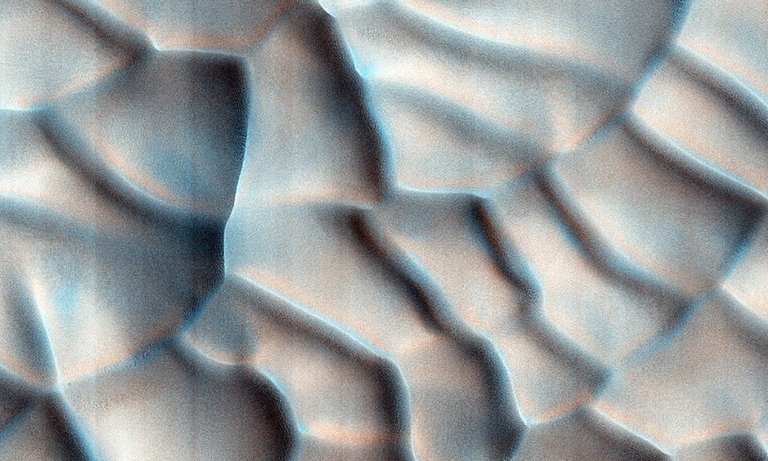
I have always been fascinated by satellite images of our solar system. The textures and terrains of the planets, moons and asteroids around us (and beneath us) have often found their way into my drawings, and flipping through the images often sparks new ideas for my collection of short stories. In each post in this series, I will present one of my original drawings alongside a resource for incredible satellite images. I hope to spread the wealth of knowledge that can be found in these lesser-known resources and most importantly pass along that feeling of wonder we all experience when peering into outer space.
Part One : My Creation
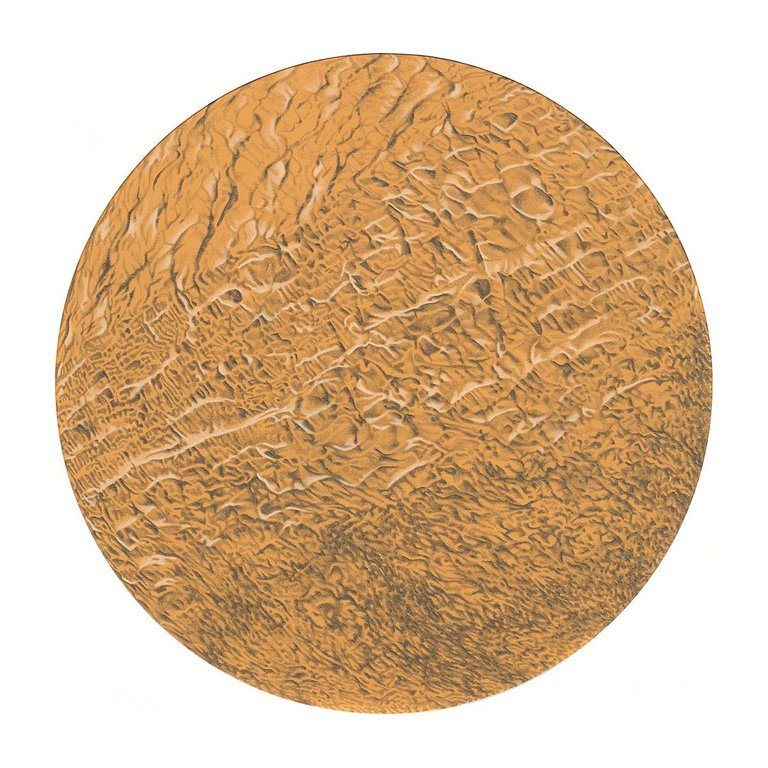
The above pencil drawing depicts a fictional planet where the entire surface is covered in sand dunes. This illustration accompanies an as-yet-unfinished short story that describes how life would be on this planet. Here is an excerpt from an early draft of this story:
Picture a global ocean of sand with dunes like slow-motion tidal waves. Unable to construct a sense of permanence atop the shifting sands, my ancestors opted for a foundation on bedrock, which comes with the unfortunate side effect of being repeatedly engulfed by roving mountains. The wind blows wherever it damn well pleases and, in so doing, tucks entire civilizations away for safekeeping. In some places, spires periscope above the surface, a mere fingertip pointing out the meaty body hidden below. I suppose a decent metaphor involving an iceberg could be made, but it doesn't seem right considering the parched conditions of this place.
Life in the dunes is one of constant movement, a dance between sink and float. The inherited solution to the migrating dunes is a migrating civilization. With countless fortresses sprinkled throughout the globe, the entire community picks up and moves every time our world falls beneath the surface. We watch as the wave ominously approaches, one thrust of sandpaper wind at a time. Our ground level rises and rotates and our architecture evolves to accommodate undesigned pathways and divisions. Over the course of multiple generations the dunes swallow up everything we've ever known, and all the while unveil previously unknown wonders in our midst.
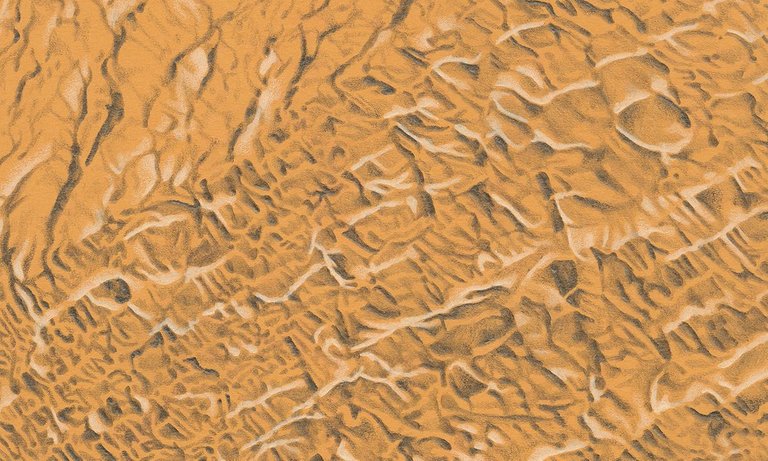
Part Two : The Universe's Creation
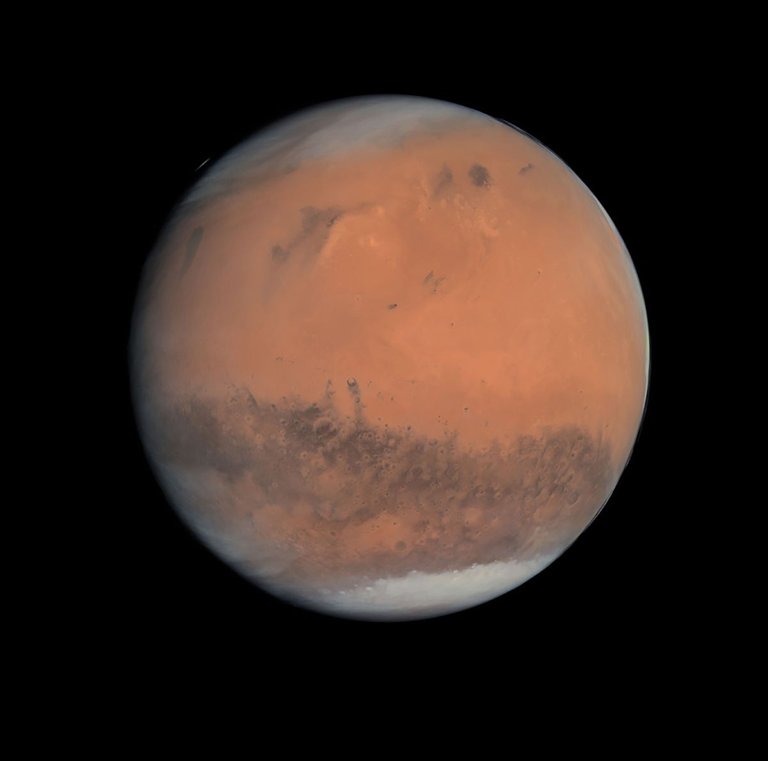
My drawing was largely inspired by satellite images of Mars. Years ago I came across an incredible resource called HiRISE, which is part of the Lunar & Planetary Laboratory at The University of Arizona. This website provides a giant catalog of high-definition images taken by a powerful camera which has been orbiting Mars since 2006. Here is the description of the project as written on their website:
HiRISE (High Resolution Imaging Science Experiment) is the most powerful camera ever sent to another planet, one of six instruments onboard the Mars Reconnaissance Orbiter. We launched in 2005, arrived at Mars in 2006 and have been imaging ever since. Our camera’s high resolution capability (imaging up to 30 centimeters per pixel) remains unprecedented for any existing orbiter in the study of the Red Planet, as well as being an indispensable instrument for helping to select landing sites for robotic and future human exploration. In the past decade, we’ve also imaged avalanches in progress, and discovered dark flows that may or may not be briny seeps.
Below you'll find some of my favorite images from this expansive catalog, but I encourage you to go to HiRISE to explore their resources yourself.
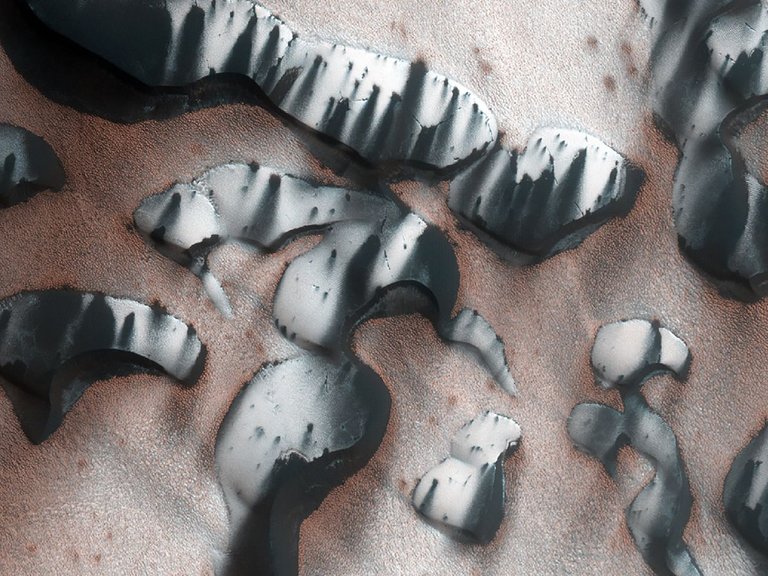
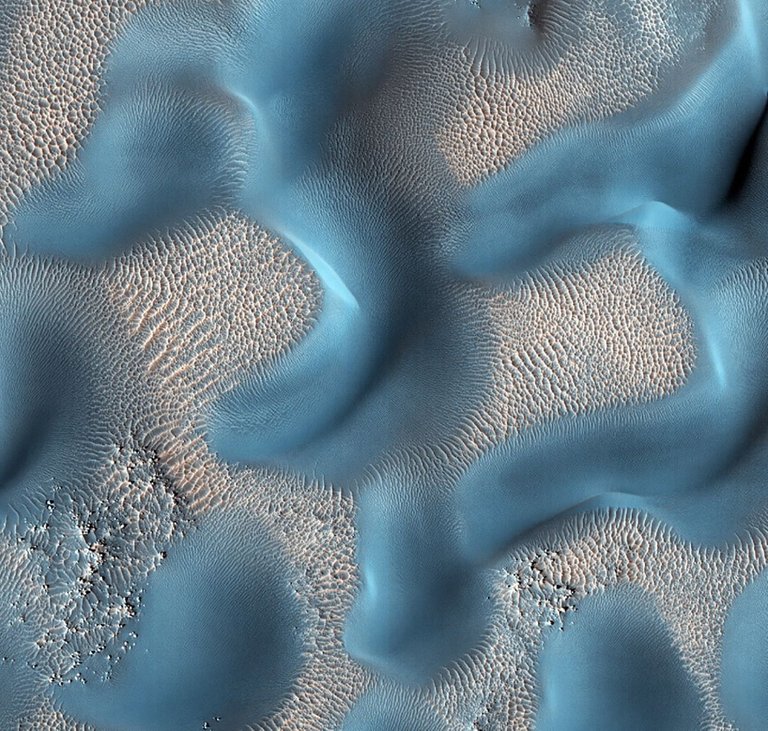
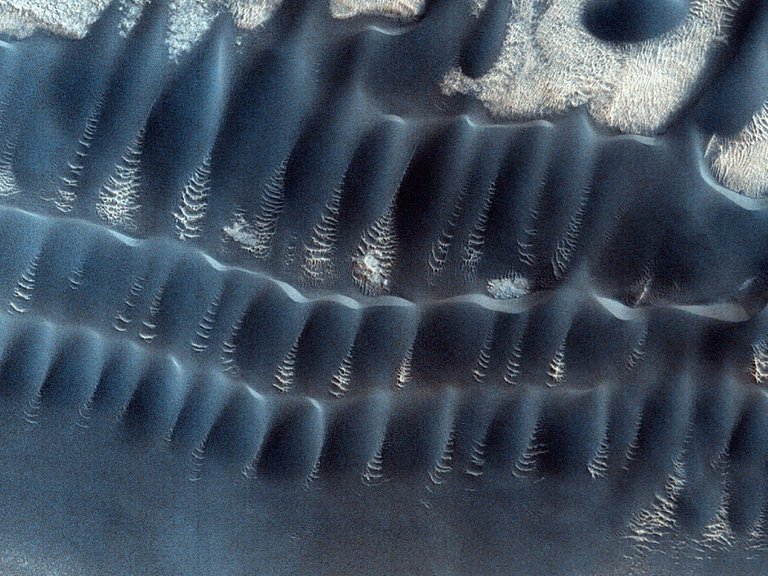
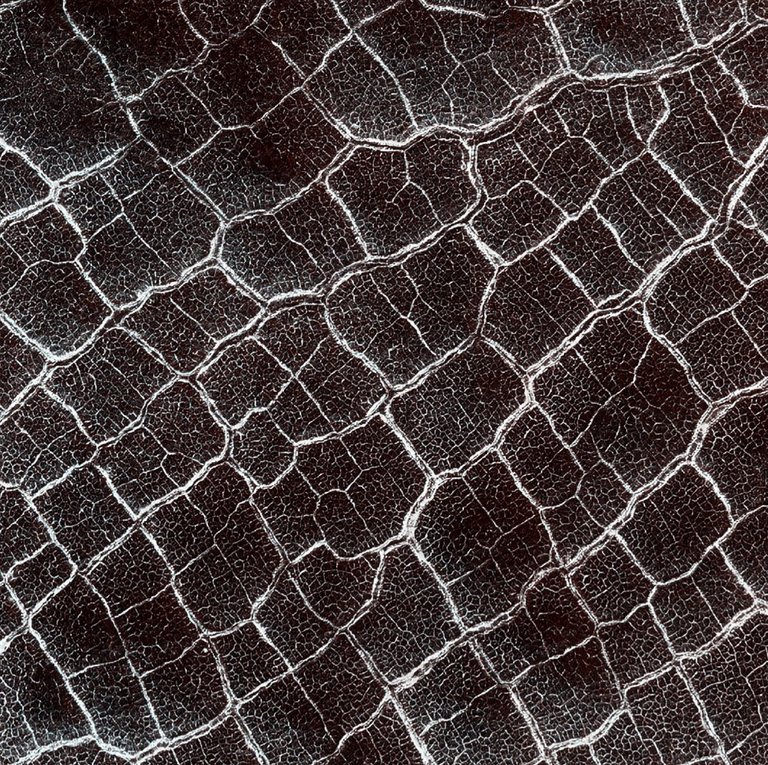
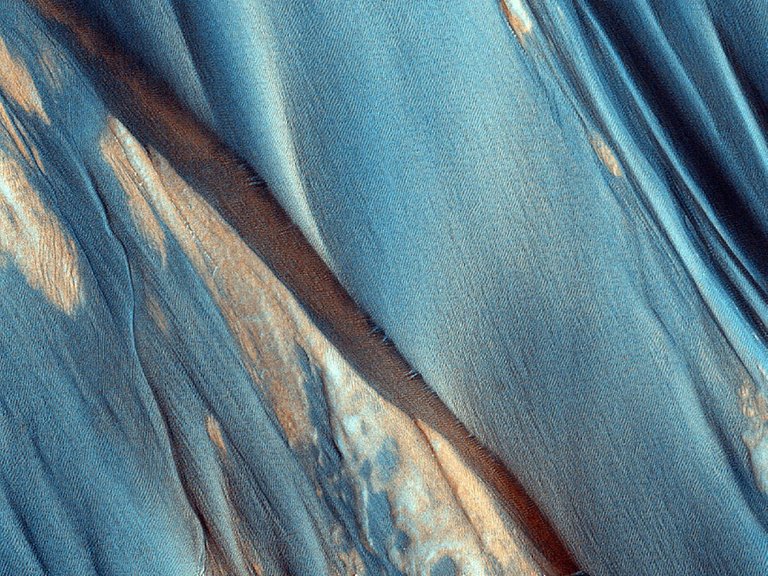
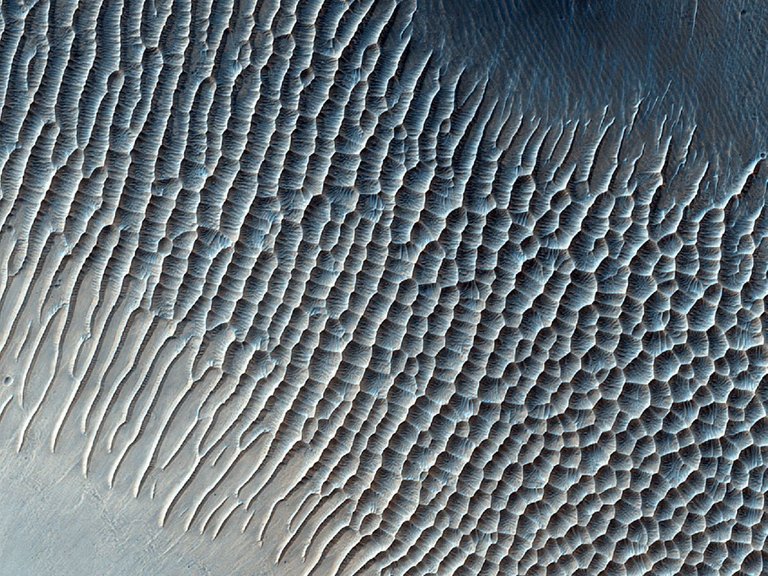
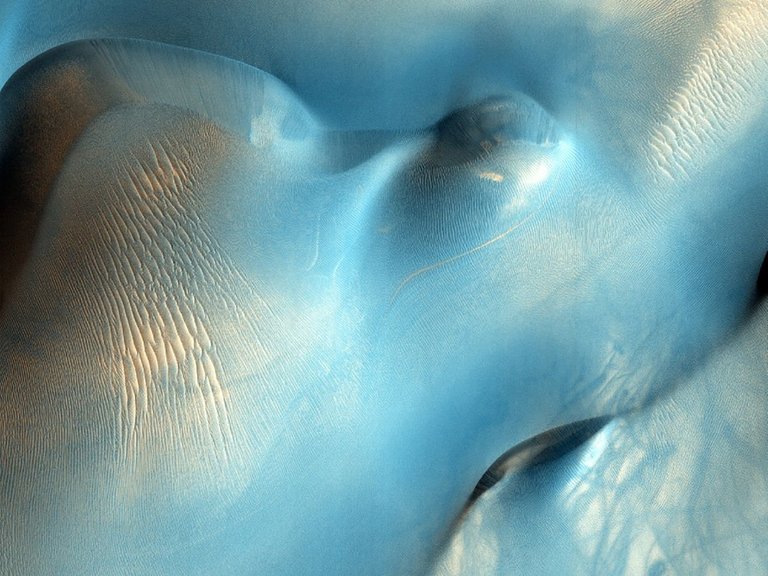
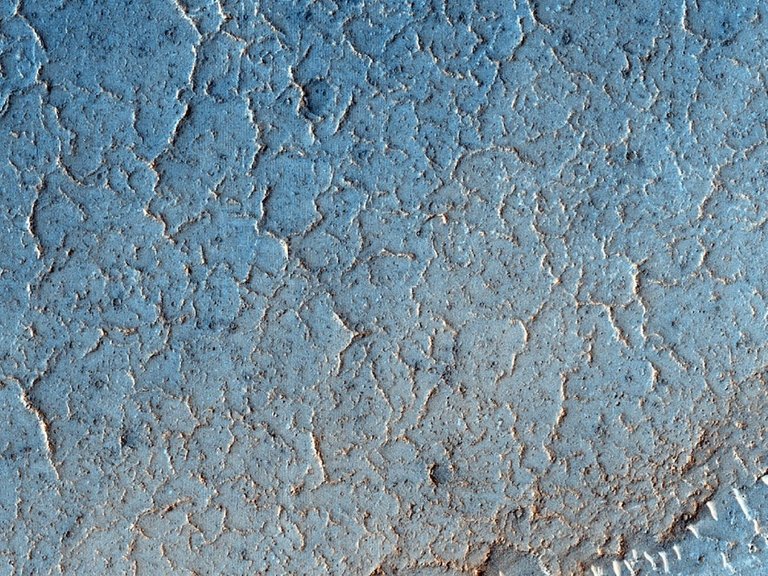
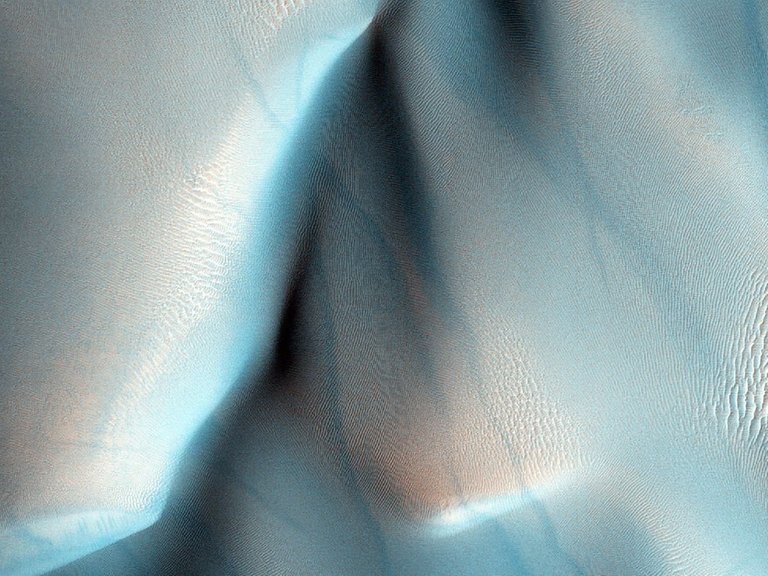
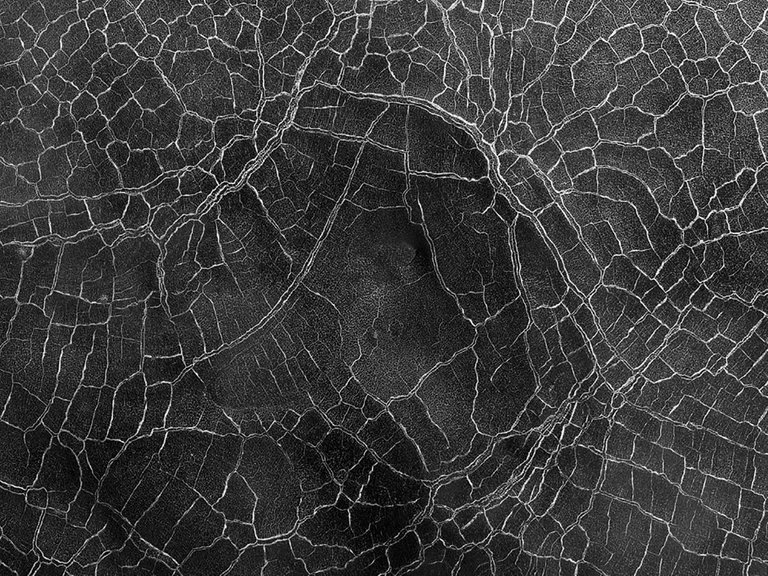
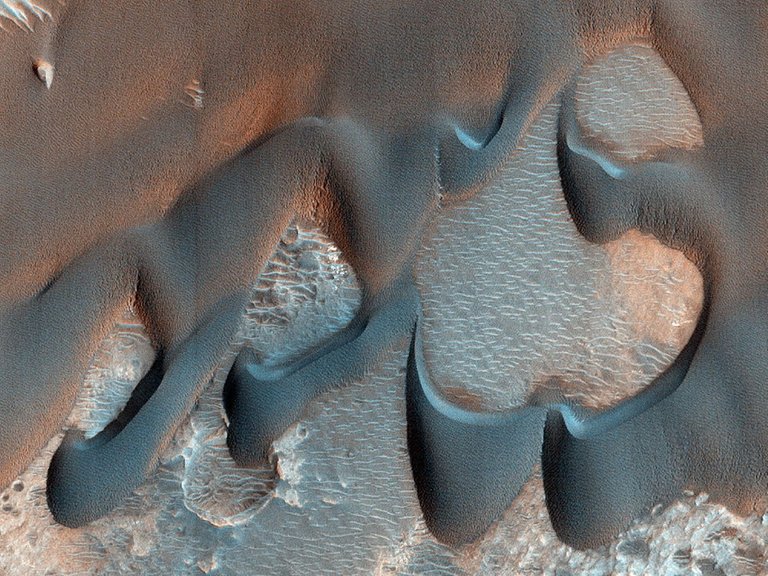
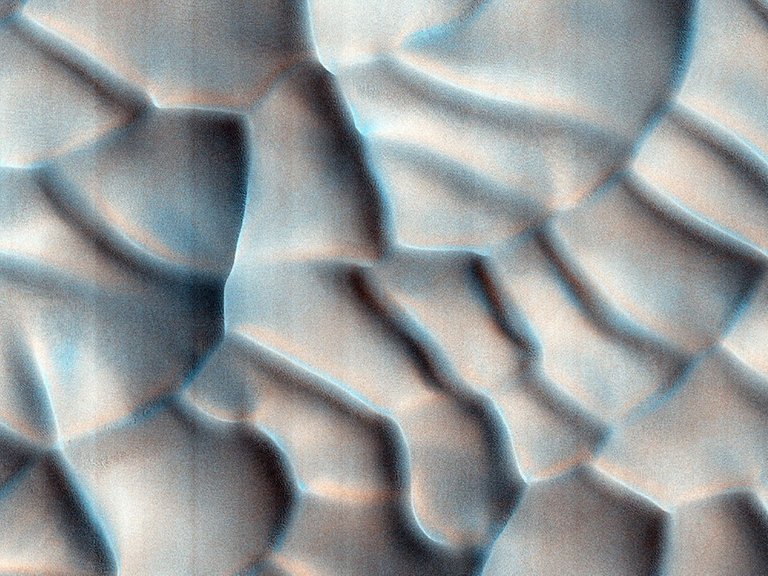
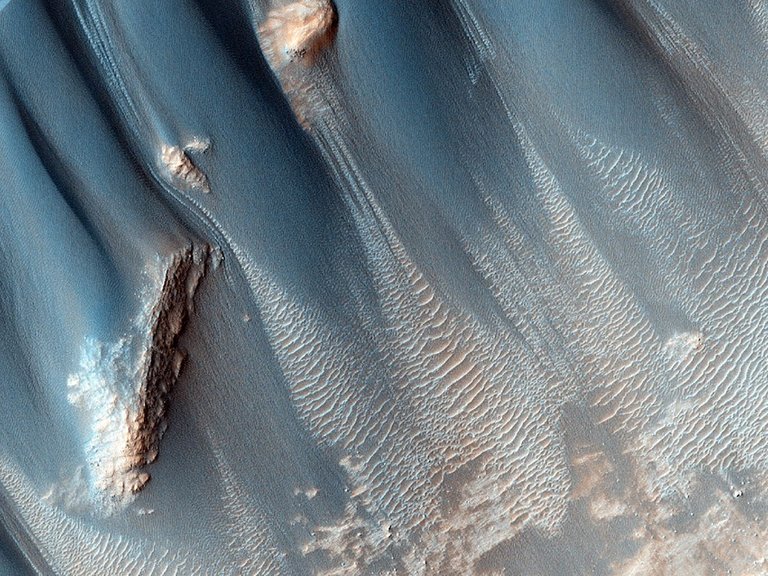
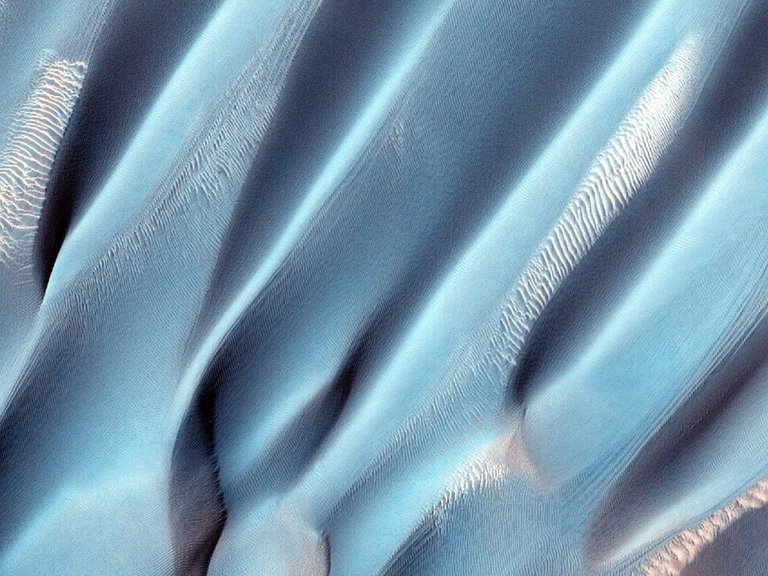
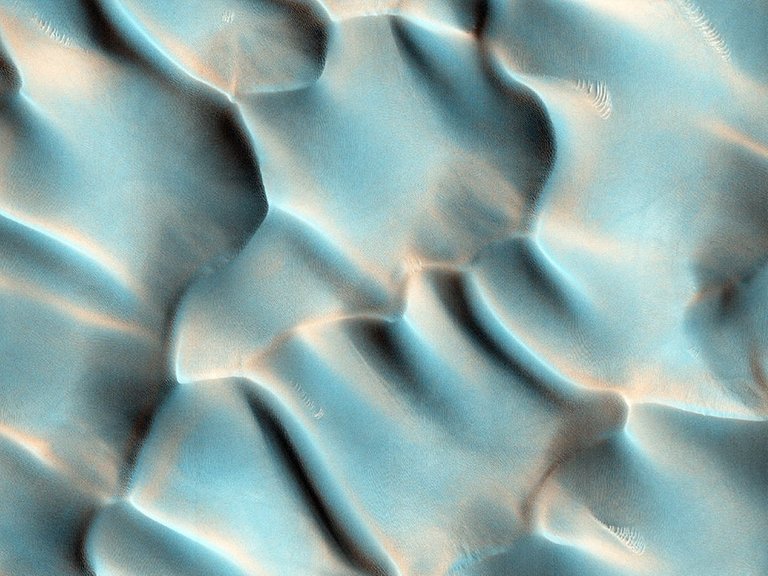
Let me know what you think of these images in the comments below.
All feedback is welcome!

I love your drawing — so cool that you were able to make those textures with pencils. And those satellite images are awesome!
Thanks much @jeffbernst!
This is nice, I enjoyed the drawing and the story sounds like a description written by someone who's lived in mars for a long time, also that HiRISE image catalog is amazing 👌🏼, didn't know anything about it thanks for sharing @erb
Glad you liked it @jsf!
awesome bro.. i never saw these type of photography....thats really nice..
Thanks @sakib5!
HiRISE is great source of inspiration, for pattern and color. Thanks for sharing...
Yes definitely dig deeper into their resources, there’s a lot more to discover!
I used one the image for the contest of The State of the Sndbox, I wanted to write Sndbox by imitating one space base on Mars, but too difficult for me :-)